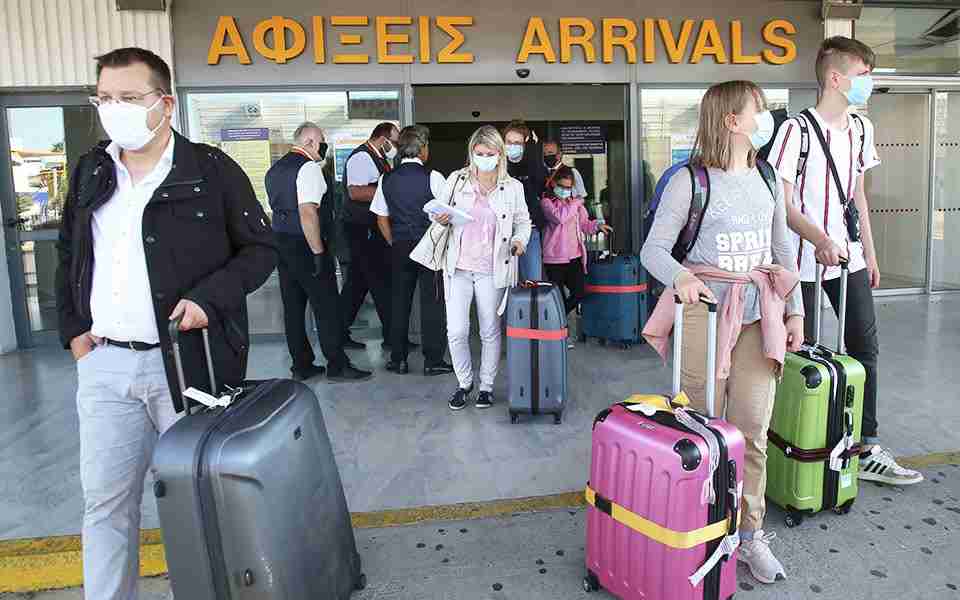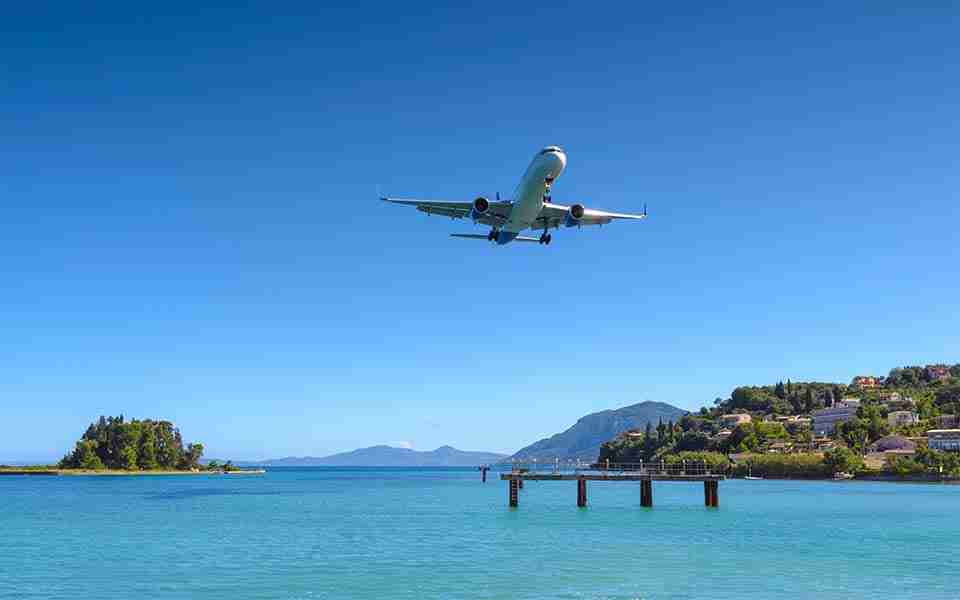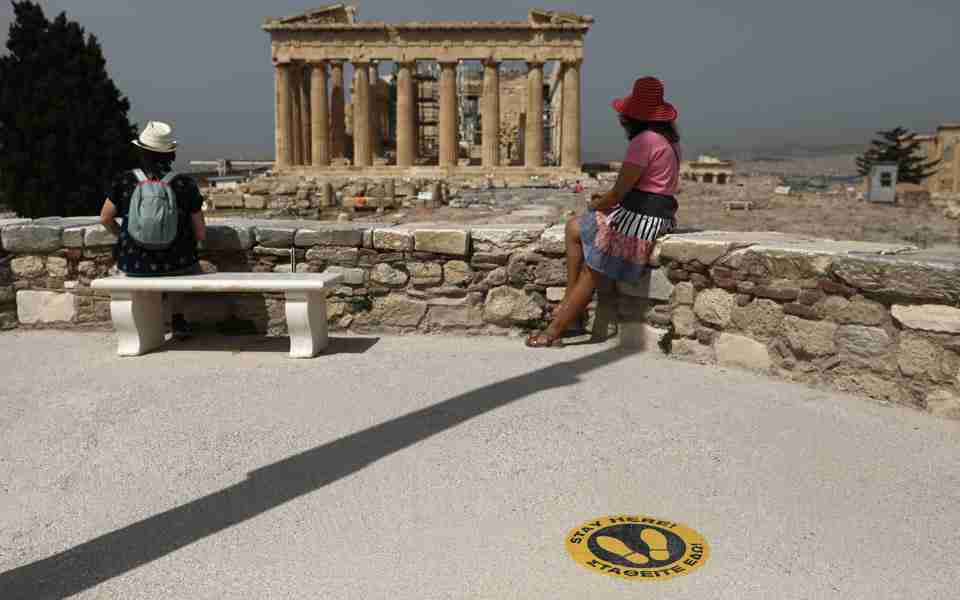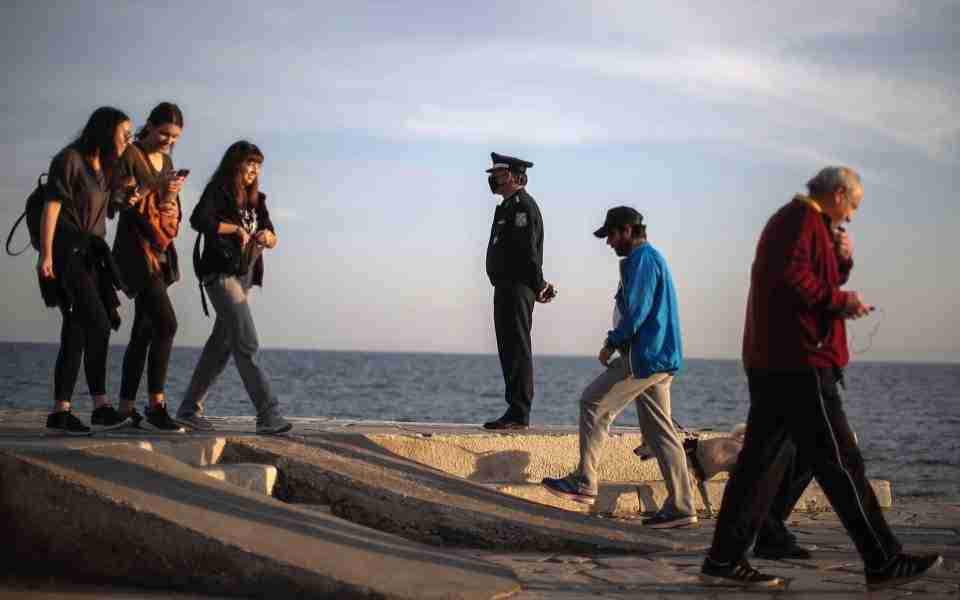Last Updated: 17/08/2020
With the summer well underway, there is a key question on many people’s minds: “Can I travel to Greece again?”
In this article we will seek to provide the most up-date-information about the situation in Greece and developments regarding tourism and international travel to the country. As the situation is likely to remain fluid, we will be regularly updating this article with the latest developments.
IS GREECE OPEN TO TOURISM?
As of June 15 the international tourism period began in Greece, with seasonal hotels allowed to open their doors again. Restrictions on international air travel have been eased allowing tourists to land from abroad at airports around the country.
The reopening of Greece to international tourism will only apply to countries that meet certain epidemiological criteria with regards to Covid-19 – meaning countries where the spread of the coronavirus has been contained to low levels.
After arriving in Greece, visitors are allowed to move freely around the country. However a range of measures to prevent the spread of Covid-19 have been adopted (such as prohibiting large gatherings, requiring the use of masks in certain areas, etc). See our article on the new rules here for more details.
FROM WHICH EUROPEAN COUNTRIES IS AIR TRAVEL ALLOWED TO GREECE?
All travelers from EU+ countries can fly to Greece for tourism as of June 15 (the EU+ consists of the EU plus Switzerland, Norway, Lichtenstein and Iceland).
However, travelers from areas with relatively high incidences of Covid-19 will be subject to stricter screening procedures (meaning they are more likely to be tested for Covid-19 on arrival). The Greek government is following EU guidelines in order to determine which countries are considered at high risk regarding the spread of COVID-19.
As of July 15, direct flights from the UK (still in the Brexit transition period until December 31 and presently treated as an EU member country) have resumed, with travelers from the country subject to the same protocols as other visitors (namely the completion of the Passenger Locator Form – see below). Travelers flying from Bulgaria, Romania and Malta will have to present a negative Covid-19 test upon arrival, performed up to 72 hours prior to entering the country. This does not apply to Greek citizens, permanent residents of Greece, and those travelling for essential professional reasons.
Additionally, these passengers will have to fill a Passenger Locator Form (see below) and may be subject to testing upon arrival.

© Shutterstock
CAN I TRAVEL FROM OUTSIDE OF THE EU (and EU +)?
As of July 1, tourism from some non-EU+ countries with low levels of spread of Covid-19 has been permitted. Greece remains aligned with advice from the European Commission in determining if a non-EU+ country is considered at high risk of infection and at the moment is allowing nationals from the following 12 non-EU+ countries:
Australia, Canada, Georgia, Japan, Morocco, New Zealand, Rwanda, South Korea, Thailand, Tunisia, Uruguay, and United Arab Emirates.
However, all travelers entering Greece from airports of the United Arab Emirates are obliged to present a negative Covid-19 test upon arrival until August 15.
Until August 15, all flights to Greece from Albania and North Macedonia are allowed to land only at Athens International Airport (AIA). Flights from Turkey are suspended until August 15.
CAN I VISIT GREECE FROM THE USA THIS SUMMER?
The short answer is that this remains to be determined.
To date, the US remains among the non-EU countries for which the EU recommends travel restrictions due to a relatively high prevalence of Covid-19. As such, Greece has extended the ban on non-essential travel from the US until at least July 31.
Whether this ban will be lifted later in the summer remains to be seen, and will depend in part on whether the US is successful in limiting the spread of the coronavirus in the coming weeks.
In recent comments the Minister of Tourism Harry Theocharis said the government was assessing possible mechanisms that would allow tourism from the US to resume later in the summer (eg by requiring all travelers to have been tested for Covid-19 prior to their arrival).
“Both at a European level and at the level of Greece, the entrance of American tourists is being assessed. We will be monitoring the situation and that will happen when it is possible, which is estimated to be in August.” Theocharis said in a recent interview with Star TV.
What is the EU+?
The EU+ consists of the EU plus Switzerland, Norway, Lichtenstein and Iceland.

WHAT DO I HAVE TO DO BEFORE TRAVELING TO GREECE? WHEN I ARRIVE WILL I NEED TO GO INTO QUARANTINE?
All international travelers arriving to Greece must fill a Passenger Locator Form (PLF) 24 hours before entering the country at the latest. Upon submission of the PLF, travelers will receive an email confirmation.
On the day they are to travel (at 00.01), each passenger will receive a unique QR code on the basis of their submitted PLF which they will have to show (either on their mobile phone or printed) upon arrival to screening personnel.
Depending on the QR code, travelers will then be directed either to the exit, or to a screening area, where they will be tested for COVID-19. Those selected to be tested will still be free to move on immediately to their final destinations as declared in their PLF, where they should observe careful social distancing until their test results are available (this should be within 24 hours).
If the test result is positive, the visitor will be notified and quarantined under supervision for 14 days. If it is negative, they can continue with their holidays. Only passengers who test positive will be notified.
The Ministry of Foreign Affairs writes:
The Passenger Locator Form (PLF) is a key element in the planning. As of July 9th 2020, all travelers must complete their PLF at least 24 hours before entering the country, providing detailed information on their point of departure, the duration of previous stays in other countries, and the address of their stay while in Greece. In case of multiple stays, they are required to provide the address for the first 24 hours at least.
Travelers will receive a confirmation email upon submission of the PLF.
Travelers will receive the PLF with their unique Quick Response (QR) code on the day of their scheduled arrival in Greece (at midnight) and will be notified via email (the QR code will be provided in a link in the confirmation email).
The PLF can also be found on the Visit Greece app and at travel.gov.gr/#/
It is strongly recommended that all visitors download the Visit Greece app (GDPR compliant) for free, prior to their arrival in Greece.
All travelers must comply with all of the necessary preventive hygiene measures (use of masks and physical distancing) according to local guidance.

© Shutterstock
WHAT EXACTLY IS THE PROCEDURE WHEN I FLY TO GREECE?
Via the MFA:
Protocol for air arrivals
· Arrival at the entry gate.
· Transfer to the area where the screening personnel are located. Travelers are requested to show their QR code either on their mobile phone screen or in print. If travel departure begins prior to the day of arrival, travelers are allowed to board after showing the confirmation email (and not necessarily the QR code which is scheduled to arrive during their trip.)
· Depending on their QR code/confirmation, travelers are directed either to the screening area where they will be tested for the new coronavirus SARS-CoV-2 by a trained health team or to the exit (to baggage claim area or passport control).
· Upon completion of the test, travelers are directed towards the exit (to baggage claim area or passport control).
· The test results are expected to become available within 24 hours. During that time, passengers who are tested are advised to practise social distancing according to local guidelines and self monitoring for symptoms that could indicate COVID-19. In case of such symptoms, medical advice and/or contact with the National Public Health Organization (EODY) Operations Centre should be immediately sought. Only in case they test positive, the authorities will contact them and proceed with the health protocol in place. Otherwise, they may continue with their holidays, adhering to the general public health safety guidelines.
· If travelers plan to have multiple stop-overs in Greece, they must declare this and report their initial destination and their travel itinerary for the next 7 days.
CAN I COME TO GREECE BY BOAT?
Since July 1, international arrivals by sea are allowed. The protocol for arrival is similar to that for arrivals by air (see above).
Via the MFA:
Arrivals by sea by ferry ships are allowed only in Patras, Corfu and Igoumenitsa ports.
Travelers must complete 24 hours before their arrival in Greece a Passenger Locator Factor (PLF) form and a confirmation email will be received upon its submission. An electronic or hard copy of the PLF confirmation should be presented to the designated crew members before embarkation onboard a ship at any Italian port. Travelers will also receive the PLF with a QR code on the day of their scheduled arrival in Greece (at midnight) and will be notified via email (the QR code will be provided in a link in the confirmation email).
No such restriction applies on yachting.

© Shutterstock
CAN I COME TO GREECE BY CAR?
The only Greek land border crossing that is open to non-essential travel is the Promachonas crossing on the border with Bulgaria. All other Greek land borders remain closed to tourists. Initially (from June 15) this border crossing was open to travelers who had filled in the Passenger Locator Form and been issued with QR codes, as with air passengers. Spot checks were carried out on some visitors crossing the border.
However, due to relatively high incidences of travelers testing positive for Covid-19, authorities have imposed additional restrictions curtailing free movement over the border.
Specifically only travelers who have been tested for Covid-19 no more than 72 hours before crossing the border (and who can supply their negative test results to authorities) will be permitted to cross the border.
Below is the full announcement of the change released by the Greek government:
As of Wednesday July 15th, 2020 at 00:01 (GMT+3), all travelers entering Greece for non-essential reasons through Promachonas border station, are obliged to present upon arrival a negative molecular test result (PCR) for COVID-19, performed up to 72 hours before their entry to Greece. Travelers should be laboratory tested with RT-PCR of oropharyngeal or nasopharyngeal swab.
Only travelers who carry a certificate of a negative RT-PCR test result will be allowed by the border authorities to enter the country. The certificates should be written in English and bear the name and passport/national ID number of the traveler.
The Laboratories that perform the RT-PCR testing should be:
-
- National Reference laboratories
- National Public Health Laboratories or
- Private laboratories which are accredited from the respective national accreditation authorities (not necessarily specifically for COVID-19).
Certificates that do not fulfil the above criteria will not be accepted. Certificate forgery is punished by Greek Law.
Travelers will still have to complete and submit their PLF form and may be subject to random testing upon arrival to the Greek border.
The other land border stations remain closed for non-essential travel.

© Intime News
WHO WILL BE TESTED FOR COVID-19, AND WHO WILL PAY FOR THE TESTS?
Covid-19 tests will not be required for all travelers coming to Greece. However, depending on the QR code delivered upon completion of the Passenger Locator Form as required by the newly implemented testing system at all Greek borders, some travelers will be subject to tests by health officials. Upon being tested, travelers will be free to move to their final destination. In the event of a positive result, they will be contacted and placed on 14-day quarantine, with expenses covered by the Greek state.
CAN A VISITOR PROVIDE THE RESULTS OF A MOLECULAR TEST (CONDUCTED UP TO 72 HOURS PRIOR TO ARRIVAL) TO AVOID BEING TESTED?
Subject to evaluation, such tests can be accepted. (Via the MFA)
WHO WILL COVER EXPENSES IN THE EVENT OF A COVID-19 PATIENT’S AIR TRANSPORTATION AND HOSPITALIZATION?
The Greek state will cover expenses related to hospitalization of visitors suffering from Covid-19 symptoms. (Via the MFA)
WHAT HAPPENS IF AN INFECTION IS CONFIRMED AT A HOTEL?
In the event of a confirmed infection, close contacts of the case will be transferred to a separate quarantine accommodation at the expense of the Greek state. Remaining guests will continue their holidays. (Via the MFA)
IF SOMEONE MISSES THEIR RETURN FLIGHT BECAUSE OF ILLNESS OR SYMPTOMS OR MISSES PREPAID ACCOMMODATION IS THERE A REFUND POLICY OR OTHER FRAMEWORK THAT COULD COVER EXPENSES?
Greece will cover transfer to hospital and medical costs as well as stay in quarantine hotel if needed. The Greek state is also urging airlines travel agents and hotels to offer maximum flexibility during this time of customer and regulatory uncertainty. (Via the MFA)

WHAT ARE THE OTHER NEW SAFETY MEASURES I SHOULD KNOW ABOUT?
The use of face masks is mandatory in all indoor public space, open spaces where safety distances can not be kept, as well as on ferries and taxi boats – both inside and on the open-air decks. These measure apply until August 24 at least.
It will, of course, not be business entirely as usual in the Greek islands and other holiday destinations this summer. Everything from hotels, restaurants and open-air cinemas to flights and ferry boats will operate under new rules to allow for social distancing.
To read more about the new rules that will be in effect, check out our comprehensive A-Z guide.
The government also recommends travelers download the free Visit Greece app prior to their arrival.
Tourism Minister Harry Theoharis has said that authorities will also boost the healthcare capacity of several tourist destinations by providing tests and doctors, as well as an operational plan for the handling of possible infections (a hotel doctor, quarantine areas and transfer to a health facility).











